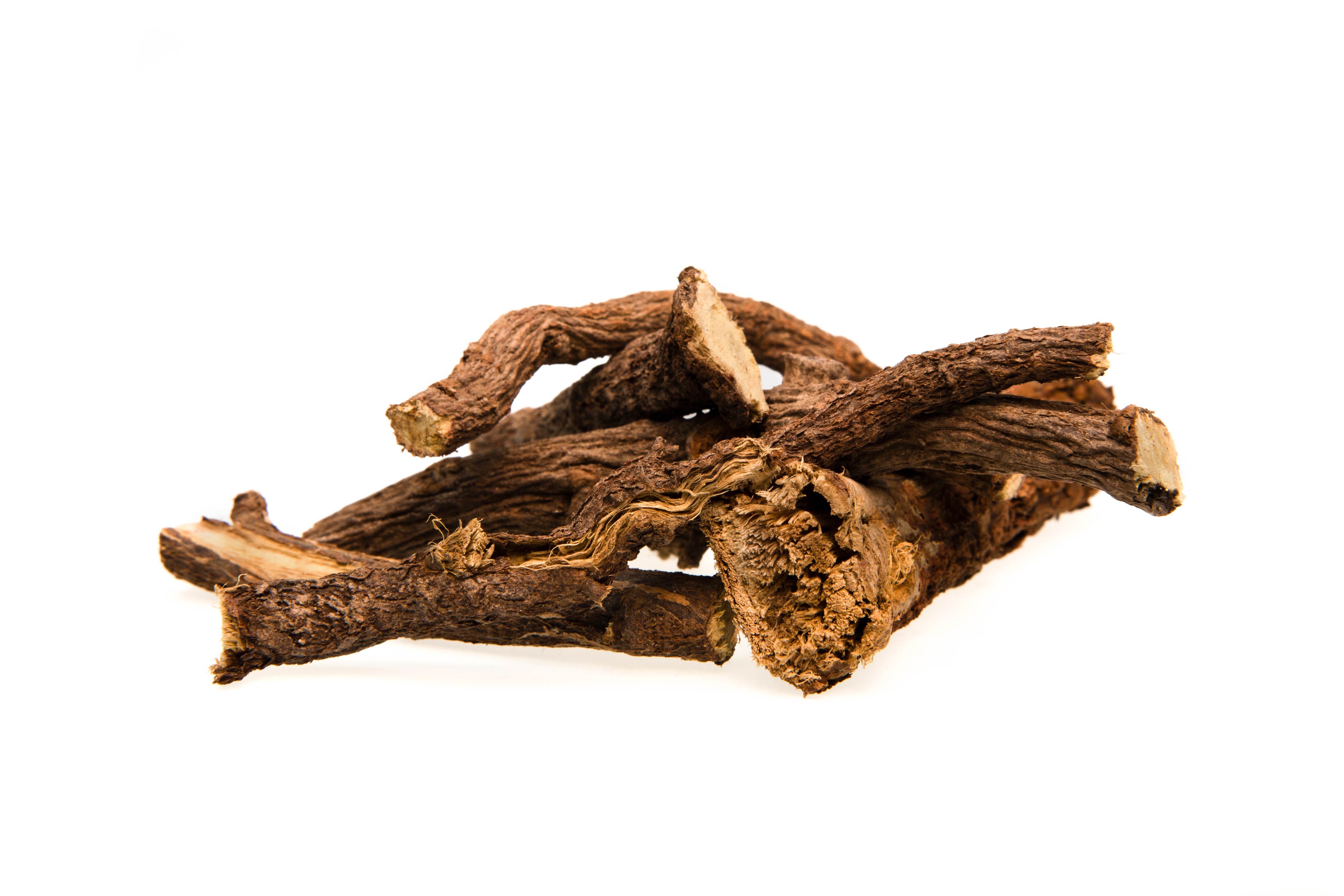Licorice

Licorice Root
History
Licorice is a herb that grows in parts of Europe and Asia
This herb has been used for thousands of years to treat a variety of ailments. Medicinal use of licorice dates back to ancient Egypt, where the root was made into a sweet drink for pharaohs
It has also been used in traditional Chinese, Middle Eastern, and Greek medicines to soothe an upset stomach, reduce inflammation, and treat upper respiratory problems. Today, many people utilize licorice root to treat ailments like heartburn, acid reflux, hot flashes, coughs, and bacterial and viral infections

Content
Licorice root contains Glycyrrhizic acid. Glycyrrhizic acid can cause complications when eaten in large quantities. Its extract contains Glabridin and Glabrene, which are flavonoids and are effective in relieving stomach discomfort. The extract reduced nausea, stomach pain, and heartburn, either

Therapeutic Applications
Glycyrrhizin may also help treat hepatitis C, a virus that infects the liver. Researchers have reported that Glycyrrhizin found in Licorice demonstrates antimicrobial activity against hepatitis C in cell samples and may hold promise as a future treatment for this virus
Licorice root extract is often used to relieve symptoms of indigestion, such as acid reflux, upset stomach, and heartburn
There is some evidence that applying Licorice to the skin can improve symptoms of eczema. Applying a gel containing licorice three times daily for 2 weeks seems to reduce redness, swelling, and itching
Due to its content of numerous plant compounds with antioxidant and anti-inflammatory effects, Licorice root extract has been studied for its protective effects against certain types of cancer. In particular, Licorice extract and its compounds have been linked to slowing or preventing cell growth in skin, breast, colorectal, and prostate cancers
Some research suggests that licorice may help kill bacteria in the mouth that cause tooth decay
Licorice root is a mainstay home remedy for women with menstrual cramps and is also believed to help alleviate many of the adverse symptoms of menopause, including hot flashes
Due to their anti-inflammatory and antimicrobial effects, both Licorice root extract and tea may also aid upper respiratory conditions
Find More Items in Bellow

